Every September, Alopecia Awareness Month always focus on a disease that affects millions people around the world. Alopecia, always recognized as hair loss, it not only afftect appearance—it also impact the confidence, emotional, even normal social activities. When we share inspiring stories, not only encourage others within the community, but we also have the opportunity to explore solutions together. When people feel noticed and appreciated when helping others, it is also an important step in confidence rebuilt.
In this article, we’ll take a look at what alopecia is, hear from those who living with the disease, discover the importance of support, and explore both medical and non-medical solutions, like hair system.
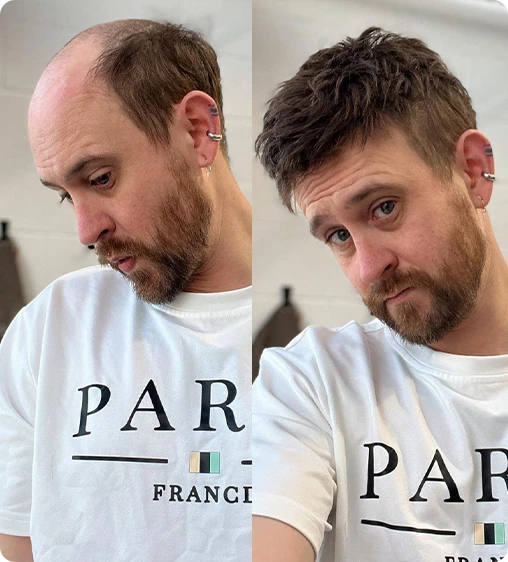
What is Alopecia?
Alopecia is an autoimmune disease. The body system will mistakenly attacks hair follicles, causing hair to fall out. It can affect the scalp, eyebrows, eyelashes and other part of the body. Although alopecia will not harm to health, but it will make negative influence on emtional and psychological.
Common Types of Alopecia
Alopecia Areata: Patchy hair loss on the scalp or body.
Androgenetic Alopecia: Often referred to as male or female pattern baldness.
Alopecia Totalis: Complete loss of hair on the scalp.
Alopecia Universalis: Total hair loss across the entire body.
The cause of hair loss is not fully known, but genetics, auto reactions and environmenta may make a influence. For example, long-term stressful can cause lose their hair rapidly. For most of people, hair loss occurs suddenly, which can make them feel anxiety.
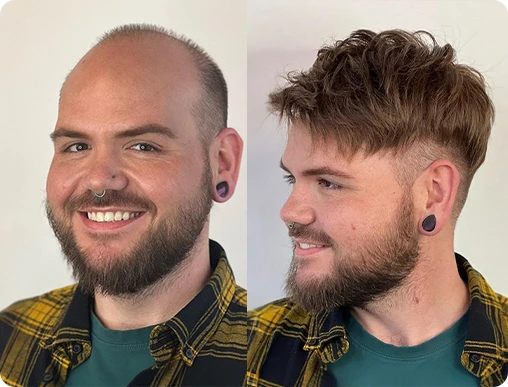
Stories That Inspire
Personal stories play an important role in Alopecia Awareness Month. They remind us that even the road to overcoming hair loss may be very difficult, but if we have enough courage and confidence, wining it is not out of reach.
Everyday Heroes
Many people with hair loss have shared how they deal with stigma, ridicule, and social anxiety. According to their courage and openness, they learned to face these cynicisms calmly and make themselves less inferior. Parents often share stories of children who lost their hair due to medical conditions, although they face challenges, but they also making great progress academically, socially, and emotionally.
Family and Friends
Support doesn’t end with the individual. Families and friends often share how alopecia is and taught them empathy, resilience, and inclusion. Friends who stand by someone with hair loss learn the importance of compassion over appearance.
Public Figures
Celebrities and stars also play a powerful role. From actors and athletes to beauty influencers, many public figures introduce about their fighting experiences with alopecia. Their voices help normal people reduce stigma, and encourage others to share their own stories.
In 2022, female celebrities with alopecia, Jada Pinkett Smith shared her fighting experiences with alopecia. She introduce some details about the emotional challenges of losing her hair. Her show has encouraged people to accept their own experience with alopecia, it also proving that powerful and confidence are not defined by hair.
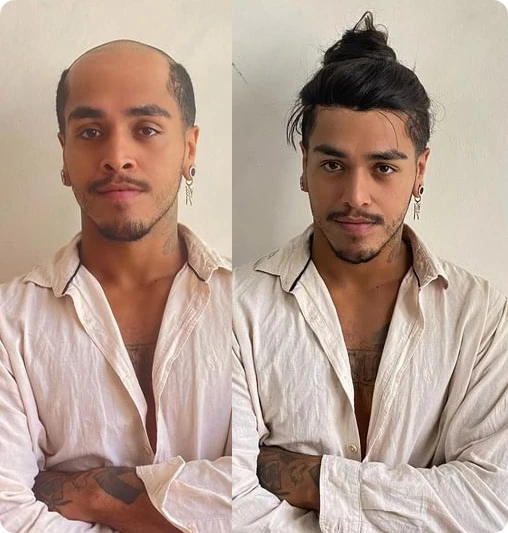
Support and Community
Living with alopecia can feel lonely, but there has lots of support systems can provide power , guidance, and connection.
Emotional and Psychological Support
Hair loss often impacts confidence, making mental health support are crucial. When you face this kind of situation, you can choose to get help from a psychologist or a counselor. They will use their professional knowledge to help you get out of the inferiority complex.
Online and Offline Communities
Support groups: National Alopecia Areata Foundation (NAAF) will host some activities, meet-ups, and online forums. We can get some suggestions for improving hair loss problems from some official news released here.
Social media: Such as Instagram and TikTok have lots of people share experience, styling tips, and encourage other people.
Non-profit and charity organization : Many organizations provide resources, financial support for wigs, and educational materials to increase cognition.
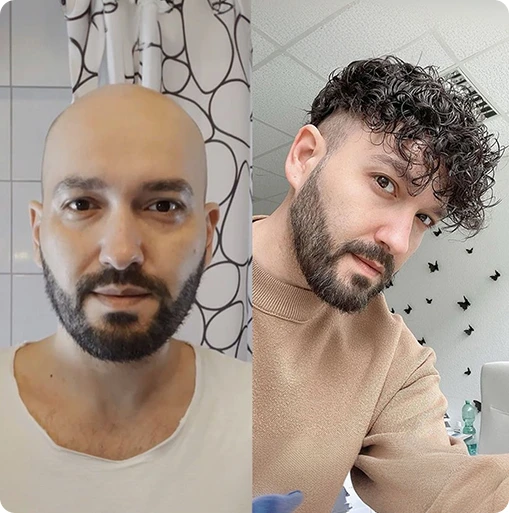
Solutions and Treatments
While there is currently no cure for alopecia, a variety of treatments and cosmetic options can help manage the condition and restore confidence.
Medical Treatments
Topical medications such as minoxidil can encourage hair regrowth in some cases.
Corticosteroid injections may help reduce inflammation and stimulate follicle activity.
Laser therapy is a non-invasive option designed to promote circulation and support hair health.
New research continues to explore advanced therapies, including JAK inhibitors and other innovative treatments.
Cosmetic Options
For many people, cosmetic solutions giving the power as medical ones:
Wigs and toupee: High-quality men wigs and mens toupee provide natural-looking coverage, allowing people to change styles with confidence.
Mens Hair replacement: Suitable for those with thinning hair, they add volume and length.
Scalp micropigmentation: A cosmetic tattooing technique that creates the look of closely shaved hair.
Lifestyle and Nutrition
A balanced diet rich in vitamins and minerals may help maintain overall hair health. Stress management such as meditation, yoga, or journaling can also support mental and physical well-being.
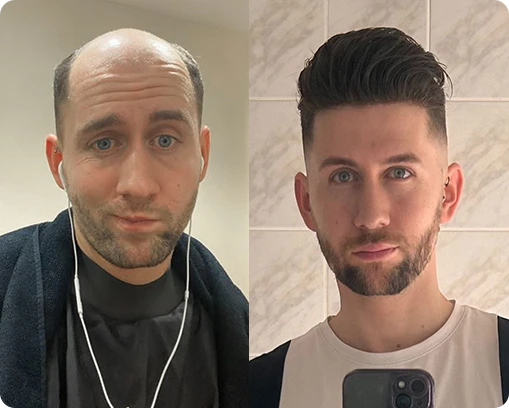
How to Get Involved in Alopecia Awareness Month
Awareness is not just about understanding alopecia—it’s about taking action to support those affected.
Social Media Activities
Many social media celebrities choose to share their experiences this month. We can share these experiences with friends who fighting with hair loss, encourage them to cheer up and don‘t give up.
Fundraise and Volunteer
There have some organizations working for alopecia research and community programs by donate or volunteer. Activities like charity walks, awareness days, and online fundraisers create popularity and raising resources.
Share Your Story
You can sharing your personal experience to encourage others on social media, in local groups, or within your community. Every story will make a chain reaction that encourages other people compassion and awareness.
Alopecia Awareness Month is not only an activity—it’s a global movement that amplify public voices, increase communities, and empowers individuals. According to inspiring stories, supportive networks, and effective solutions, people with alopecia are rebuilt confidence and redefining beauty.
By learning, sharing, and supporting, we can play a role in fostering understanding and creating a more inclusive world for those living with hair loss. This month, let’s working for spread awareness, offer compassion, and stand in solidarity with the alopecia community.